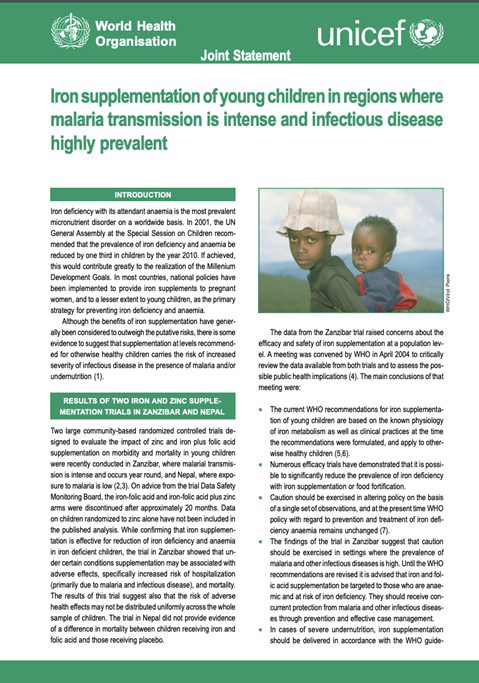Iron supplementation of young children in regions where malaria transmission is intense and infectious disease highly prevalent
Joint statement by the World Health Organization and the United Nations Children’s Fund.

Overview
Iron deficiency with its attendant anaemia is the most prevalent
micronutrient disorder on a worldwide basis. In 2001, the UN
General Assembly at the Special Session on Children recommended that the prevalence of iron deficiency and anaemia be
reduced by one third in children by the year 2010. If achieved,
this would contribute greatly to the realization of the Millenium
Development Goals. In most countries, national policies have
been implemented to provide iron supplements to pregnant
women, and to a lesser extent to young children, as the primary
strategy for preventing iron deficiency and anaemia.
Although the benefits of iron supplementation have generally been considered to outweigh the putative risks, there is some evidence to suggest that supplementation at levels recommended for otherwise healthy children carries the risk of increased the severity of infectious disease in the presence of malaria and/or undernutrition.
